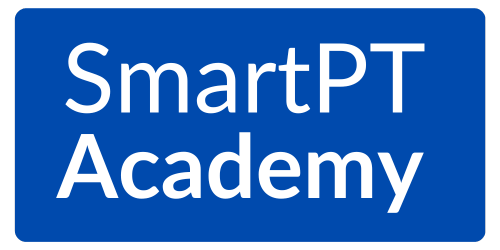Live Webinar
About live session
“Effective SOAP notes writing for Physiotherapists” provides a comprehensive guide on writing SOAP notes for physiotherapy documentation.
This course, presented by Dr. Rina Pandya, a Senior Lecturer of Physiotherapy and global webinar presenter, aims to enable participants to:
1. Explain the structure and purpose of the SOAP note format (Subjective, Objective, Assessment, Plan) in line with HCPC and CSP standards.
2. Apply common clinical abbreviations and symbols correctly within each SOAP component.
3. Construct clear, clinically relevant SMART goals (Specific, Measurable, Achievable, Relevant, Time-bound).
4. Document physiotherapy assessments and treatment sessions using accurate, concise, and standardized SOAP note entries, including for musculoskeletal cases.
What you’ll learn
Key components of the webinar includes:
- Understanding SOAP Notes: Definition, components, and structure.
Importance of Accurate Documentation: Facilitates clear communication, ensures continuity of care, supports clinical decision-making, and meets regulatory standards. - Key Components of Medical History: Details on previous surgeries, past medical conditions, medications, allergies, and family history.
- Initial Patient Assessment Overview: Covers chief complaint, history of presenting complaint, past medical and surgical history, medications & allergies, family history, social & occupational history, functional status, psychosocial factors, patient goals, and consent.
- Common Abbreviations: Extensive lists of abbreviations used in healthcare, including those for activities of daily living, range of motion, treatment, diagnosis, time-based notations, routes of administration, muscles, and anatomy. It also specifies when abbreviations should NOT be used.
- Detailed Breakdown of SOAP Components:
Subjective (S): Patient-reported information, symptoms, medical history, and goals (e.g., chief complaint, history of present illness, pain characteristics).
Objective (O): Measurable, observable data from examination findings and test results (e.g., range of motion, strength, functional assessments, special tests).
Assessment (A): Professional interpretation of subjective and objective data, including diagnosis, prognosis, and problem list.
Plan (P): Treatment plan outlining interventions, SMART goals, and expected outcomes (e.g., exercises, manual therapy, frequency, duration, follow-up). - Understanding SMART Goals: Each aspect of SMART goals (Specific, Measurable, Achievable, Relevant, Time-bound) is explained with examples.
- Guidelines for Writing Notes: Tips on when to write notes, using shorthand, abbreviations, signs, and symbols.
- Case Study Analysis – Ankle Sprain: A detailed example of Daniel Harris, including his presenting complaint, history of present illness, past medical history, social/functional background, and objective examination findings.
- SOAP Note Writing Exercise and Example: A structured exercise and a complete example of an initial assessment SOAP note for the ankle sprain case, demonstrating how to apply the learned principles.The webinar concludes by emphasizing the importance of accurate SOAP note writing for high-quality patient care and adherence to HCPC and CSP requirements.

USD $25

Course Presenter
Dr. Rina Pandya PT DPT PGLTHE FHEA
Dr. Rina Pandya is a highly experienced physical therapist with a diverse international background. She earned her entry-level degree from the School of Allied Health Sciences Manipal, India, and her post-professional doctoral degree from the University of Michigan-Flint.1
With extensive clinical experience in India, Oman, the United Kingdom, and the United States, Dr. Pandya brings a global perspective to her practice. Her roles as a clinician and rehabilitation manager have equipped her with a comprehensive understanding of healthcare systems and patient care.
A dedicated advocate for lifelong learning, Dr. Pandya has completed numerous professional development courses and certifications, including a Fellowship in Higher Education (FHEA) and a Postgraduate Certificate in Learning and Teaching in Higher Education (PGLTHE). Her passion for evidence-based practice is further strengthened by her completion of a formal research methods program at the Manchester School of Physiotherapy.
Dr. Pandya’s commitment to teaching and her desire to empower clinicians make her an ideal instructor for this course. Her engaging teaching style and practical approach will enhance your understanding of the subject matter and inspire you to implement evidance-based practices in your clinical setting

